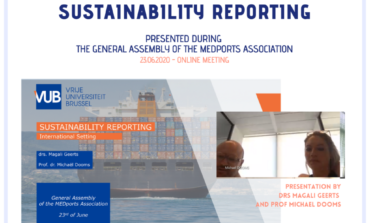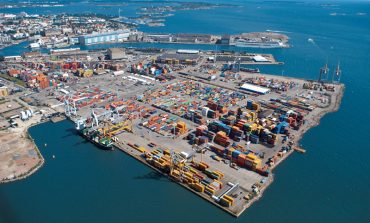 Category
Category

Michael Dooms
dr. Michaël Dooms (MSc & PhD, Applied Economics: Business and Technology, Solvay Business School, University of Brussels) is associate professor at the Solvay Business School at the University of Brussels (VUB). He is program director of the MSc in Management/Bedrijfskunde, teaches courses in Management and Strategy, Organization Design & Change, and is responsible for the internship program and foreign trade mission. For the trade mission project, since 2007, he has supervised more than 150 projects on the field aimed at foreign market expansion in emerging economies such as, inter alia, India, Brazil, China, Indonesia, Kenya, Colombia. His PhD Thesis won the 2011 Palgrave MacMillan MEL PhD Competition (4th edition). It treats the spatial and dynamic aspects of stakeholder management, with an application to large-scale infrastructure projects, including port projects, master plans, and vision cases. He is a member of PortEconomics.eu and a member of the Port Performance Research Network (PPRN), where he co-animates the port authority strategy group. His other research interests are in the fields of complex project evaluation (of large scale infrastructure projects), stakeholder management and corporate strategies. He is currently a guest professor of port management and strategy at universities in the Netherlands (MEL-Erasmus University Rotterdam) and Greece (AUEB), and formerly in Belgium (Antwerp, ITMMA). He has worked as a project manager and researcher on the formulation, evaluation, management and implementation of infrastructure development projects, strategies and visions characterized by a multi-disciplinary (integration of technical, economic and environmental criteria) and multi-stakeholder (public and private sector, local communities) approach, exceeding a total value of more than 10 million euros. Among the principals in contract research and consultancy are infrastructure managers (port authorities, airports, railway infrastructure,...), private construction firms and project developers, regional development agencies, stakeholder interest groups, trade associations, and various government levels (local, regional, national, transnational). In the field of strategy and organizational change, he was a key member of the strategy office developing and implementing of a strategic plan for the Belgian rail infrastructure manager Infrabel (2006-2010). In the management of the University of Brussels, he was vice-chairman of the Board of Directors during 2005-2008. He also co-founded a university spin-off company. From 2013 onwards, he leads the PORTOPIA project (www.portopia.eu), a large EU-FP7 collaborative research project on port performance measurement.
Author's Posts
 Category
Category

















